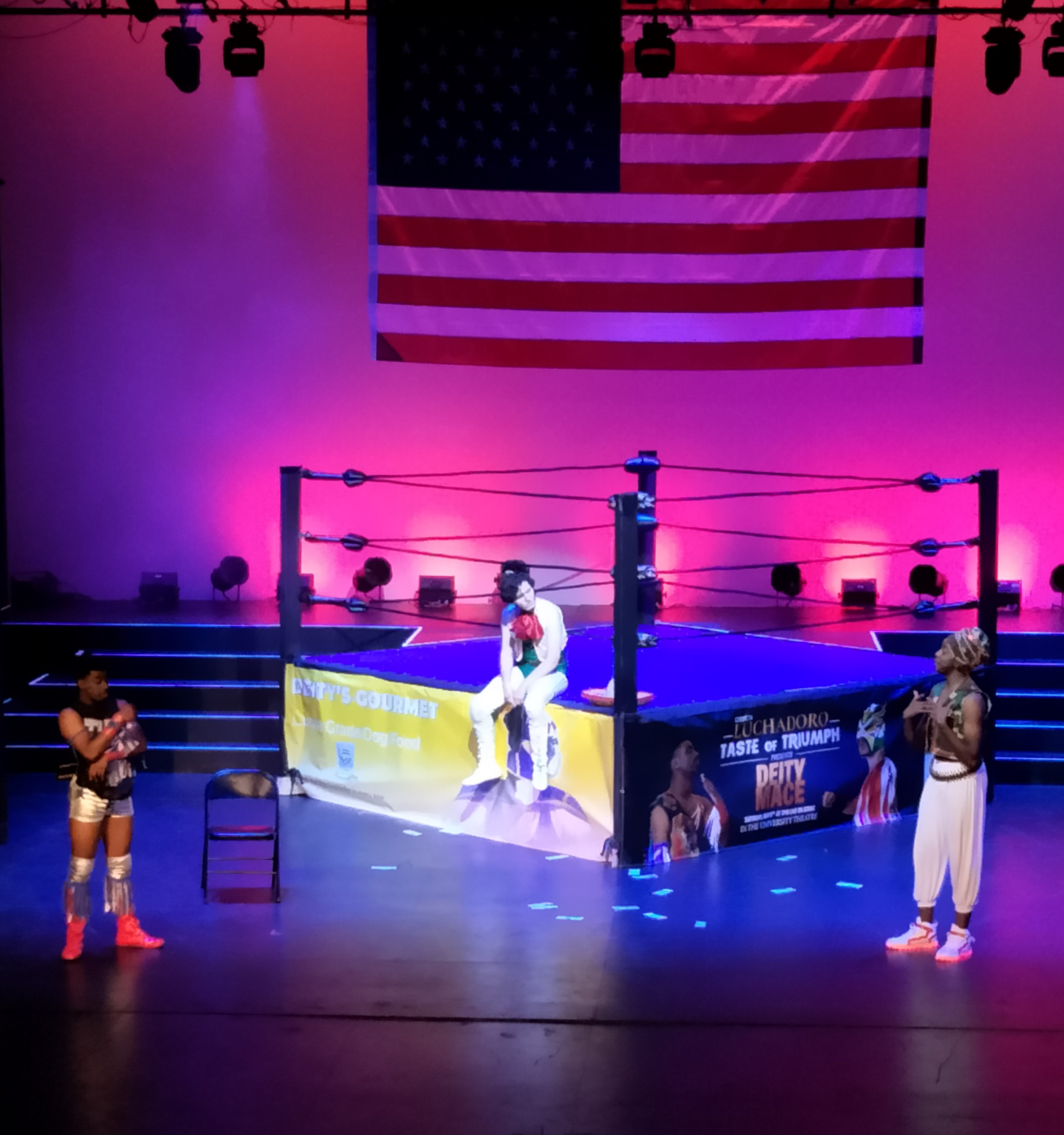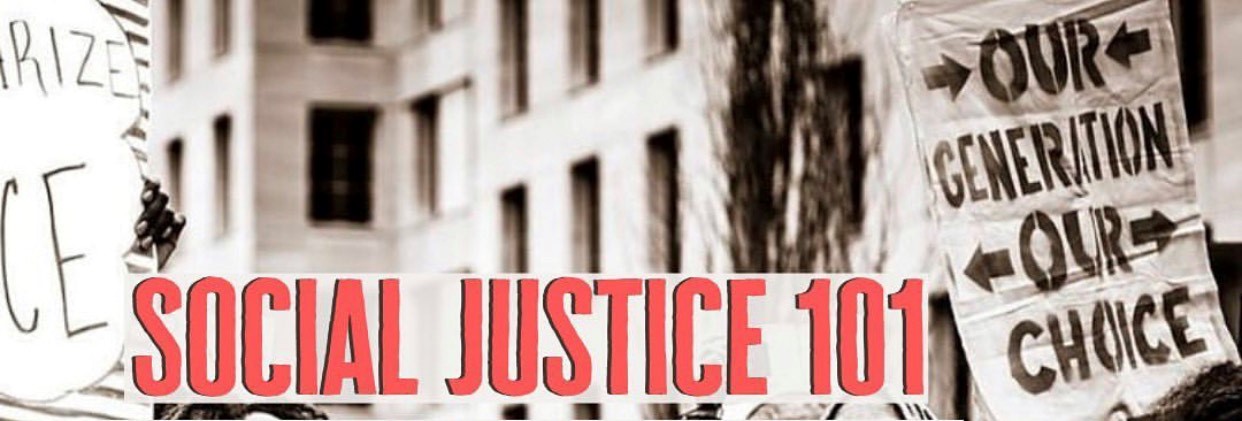Play tackled stereotypes in the wild world of pro wrestling
The University Theatre’s production of The Elaborate Entrance of Chad Deity was certainly ambitious. Boasting a talented cast, punchy dialogue, and a working ring, the play hoped to give audiences something to wrestle with. The play uses pro wrestling as a vehicle to explore themes of racism and jingoism in popular culture.
Chad Deity tells the story of Macedonio “Mace” Guerra, an aspiring pro wrestler who hopes to make a name for himself in the big leagues. Mace has a love-hate relationship with pro wrestling, an industry which has had no shortage of racist characters and storylines over the years. Still, he desires to sit atop the business.
Although Mace is Puerto Rican, his boss saddles him with a Mexican luchador gimmick. The play explores Mace’s efforts to not only overcome his stereotypical character, but the popularity of his nemesis, the titular Chad Deity.
Inside the Edison Studio Theatre, massive posters of each actor’s character made this morality play seem larger than life. Shadows cast on an enormous white sheet hung behind the ring brought life to Mace’s monologue, offering insight into his hopes, dreams, and struggles – in and out of the ring.
Third-year theatre arts student Jaime Emiliano Bañuelos, who plays Mace, said he wanted audiences to believe he was more than just a man behind a mask. “I felt reassured, like I knew what I was going to do, I had put in the work.”
When Chad Deity makes his all-American entrance, “money” rains over him as he struts to the ring with his championship belt – his music blaring through the sound system. Mace and Deity are on a collision course for the belt, which comes to a head in the final act. Mace comes up short, and the play ends on a somber note.
Audience reactions to the play were mixed. The actors said they worked hard to keep audiences engaged and energy levels high during the show. Third-year theatre arts student Jabari Williams Jr., who played Deity, said he noticed reactions to his “elaborate” entrance were sometimes mild.
“They were clapping as I’m walking, and then it’s like, they’re quiet now. I’m like, what? What’s going on? They were just making noise,” he said.
During the show on Oct. 13, senior theatre arts student Nathan Him said he had high expectations for the performance, but walked away feeling disappointed at the end of the night.
“I was expecting the crowd to gesture and cheer us on, but when they didn’t, it was a little heartbreaking,” said Him, who played the referee. “At the end of the day, we are telling a story, and whether or not the audience reacts to it, there is a message to be portrayed.”
Williams Jr. said he tried to rile the crowd by engaging with them directly.
“When I body slammed the bad guy, the crowd was like, ‘Oh my God, he did that?’ And I acknowledged them,” said Williams.“I looked back at them and said, “Yeah, I body-slammed him. You thought that was cool? I’ll do it again if you want me to’.”
Although racism lies at the heart of the play, both the actors and the audience struggled with the dialogue, which included racial slurs and derogatory language toward different ethnic communities. The language elicited groans from the audience, and the actors said some people even walked out of the show.
The actors said they were uncomfortable with the language and understood how it affected audiences. Bañuelos said he had at first refused to say the racist words in the script, but changed his mind after conversations with the director and his co-stars.
“It was definitely nerve-wracking, but at some point [I thought] ‘I’m an actor,
This is my job’,” Bañuelos said. “Part of the role is doing things that I might not necessarily agree with or be completely comfortable with.”



